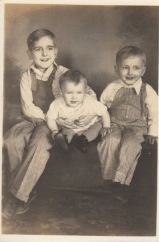The driver’s license issue: It comes up at every dementia support group meeting I attend. So, when I was at DMV and picked up a brochure titled Potentially Unsafe Driver, I was excited to see it included a form that gives you a way to notify them when a driver’s “road-worthiness” needs reevaluated.
Technically, doctors (in California, anyway) are required to notify DMV when someone is diagnosed with dementia, but apparently, this doesn’t always happen automatically. Families sometimes have to give the doctor a little push. Thankfully, our doctor was on the ball, and my dad’s license was suspended last summer.
According to DMV’s website, if the dementia is “mild,” the driver is allowed to schedule a reevaluation which includes a written and behind-the-wheel test. If he passes the tests, his license can be reinstated, however, he will be required to return within the next year for another reevaluation.
But what if you know someone who doesn’t have a medical diagnosis yet? Often, families recognize that there’s a problem – that a loved-one should not be driving – long before there’s an official diagnosis. People don’t like giving up their car keys – or the independence that comes with them – so this becomes a contentious issue and causes all sorts of strain on relationships.
That’s why this Potentially Unsafe Driver brochure caught my attention. It provides a way to do what needs to be done (get an unsafe driver off the road) while allowing you to preserve your relationship and avoid direct confrontation.
The actual form is titled “Reevaluation Request.” It has a checklist of driving problems and provides space for you to explain why the driver should be reevaluated. It does ask for your name but allows for a certain degree of anonymity. It can be printed from DMV’s website: http://apps.dmv.ca.gov/forms/ds/ds699.pdf
Don’t wait until something tragic forces the issue; do what you can now to avoid heartache later.










